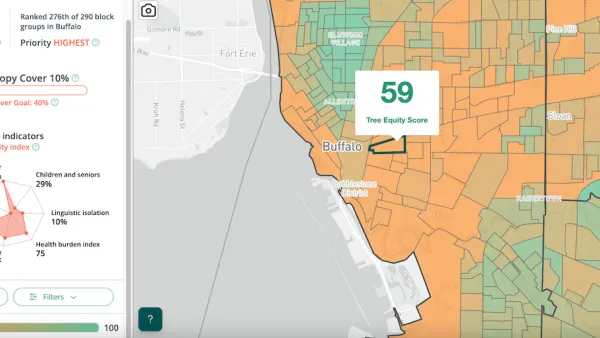Reading news stories about planning is crucially important to the worth of planners, developers, public officials, policy makers, and anyone else who cares about the way communities form and evolve. By knowing what's going on in other places, those concerned with cities and their development will be better informed to analyze and approach the planning issues facing their own communities.
Reading news stories about planning is crucially important to the worth of planners, developers, public officials, policy makers, and anyone else who cares about the way communities form and evolve. By knowing what's going on in other places, those concerned with cities and their development will be better informed to analyze and approach the planning issues facing their own communities. The more we know about the wide variety of planning issues, the better we'll be able to address them.
But it can be assured that some would argue that the relative importance of most planning news is insignificant, as the practice of planning is primarily place-based; specific plans address specific issues in specific places. This might lead some to believe that an issue or problem being faced in a city 500 miles away really doesn't have a lot to do with what's going on at home. But while the specifics of the problem and solution might be completely irrelevant to anyone outside the community in question, it is almost a guarantee that the basis of this planning issue is one that could present itself in any city across the country.
Whether it's a story about a plan to build a large housing development or a revived interest in abandoned industrial areas or a proposal for new transit technology, core issues are being addressed in news stories that have a kind of universal planning relevance. It is in the best interest of the concerned planning community to acknowledge the "local angle" of these news stories because it allows us to learn from the mistakes and successes of others, and to find a way to relate them back to our own communities. Just as doctors need to stay current on the latest medical studies and medications, planners must constantly keep their ears open to news and information about new projects or planning issues being faced in other communities. Like a doctor would diagnose a patient, it is the vital role of planners to make use of all the available information to help their communities understand and address the issues facing them. .
It almost goes without saying that this is a big world. There's a whole lot of planning going on at any given time. Now more than ever before, we have incredibly easy access to planning news stories and the lessons the have to teach. The Internet has opened the doors to a new kind of planning education -- one in a constant state of evolutionary adaptation to the new information and examples provided by media coverage of planning in action. Any planners who think their education days ended when they got that B.A., M.A., or AICP is doing a disservice to those they serve. Planning news offers an endless opportunity to expand one's expertise, improve their usefulness to their community, and spark their curiosity.
And, yes, we all can admit that planning is place-based. But it is also a practice that is firmly based upon the principle of improving communities and cities for the benefit of all. The importance of this principle is apparent in every news story about planning, no matter what the dateline says.

Analysis: Cybertruck Fatality Rate Far Exceeds That of Ford Pinto
The Tesla Cybertruck was recalled seven times last year.

National Parks Layoffs Will Cause Communities to Lose Billions
Thousands of essential park workers were laid off this week, just before the busy spring break season.

Retro-silient?: America’s First “Eco-burb,” The Woodlands Turns 50
A master-planned community north of Houston offers lessons on green infrastructure and resilient design, but falls short of its founder’s lofty affordability and walkability goals.

Test News Post 1
This is a summary

Analysis: Cybertruck Fatality Rate Far Exceeds That of Ford Pinto
The Tesla Cybertruck was recalled seven times last year.

Test News Headline 46
Test for the image on the front page.
Urban Design for Planners 1: Software Tools
This six-course series explores essential urban design concepts using open source software and equips planners with the tools they need to participate fully in the urban design process.
Planning for Universal Design
Learn the tools for implementing Universal Design in planning regulations.
EMC Planning Group, Inc.
Planetizen
Planetizen
Mpact (formerly Rail~Volution)
Great Falls Development Authority, Inc.
HUDs Office of Policy Development and Research
NYU Wagner Graduate School of Public Service




























